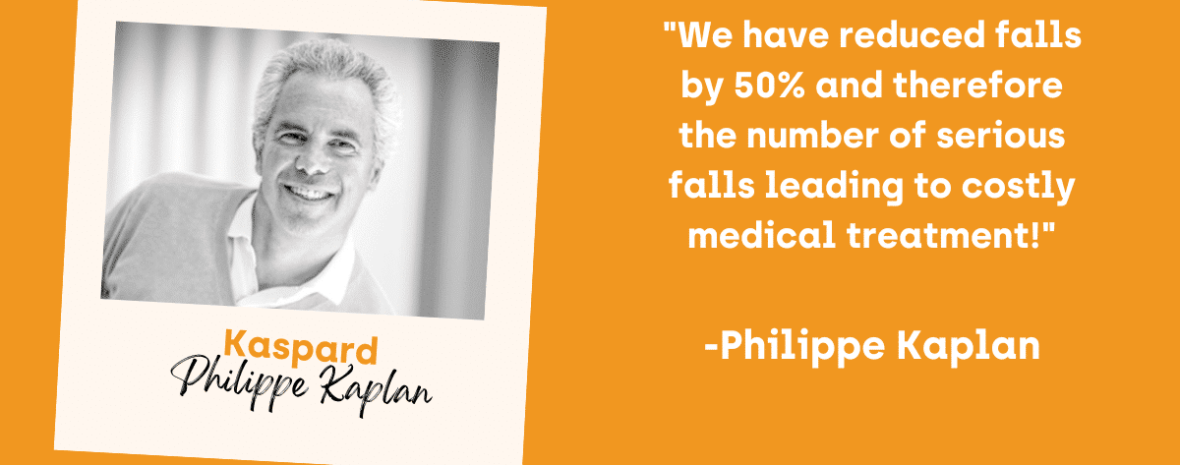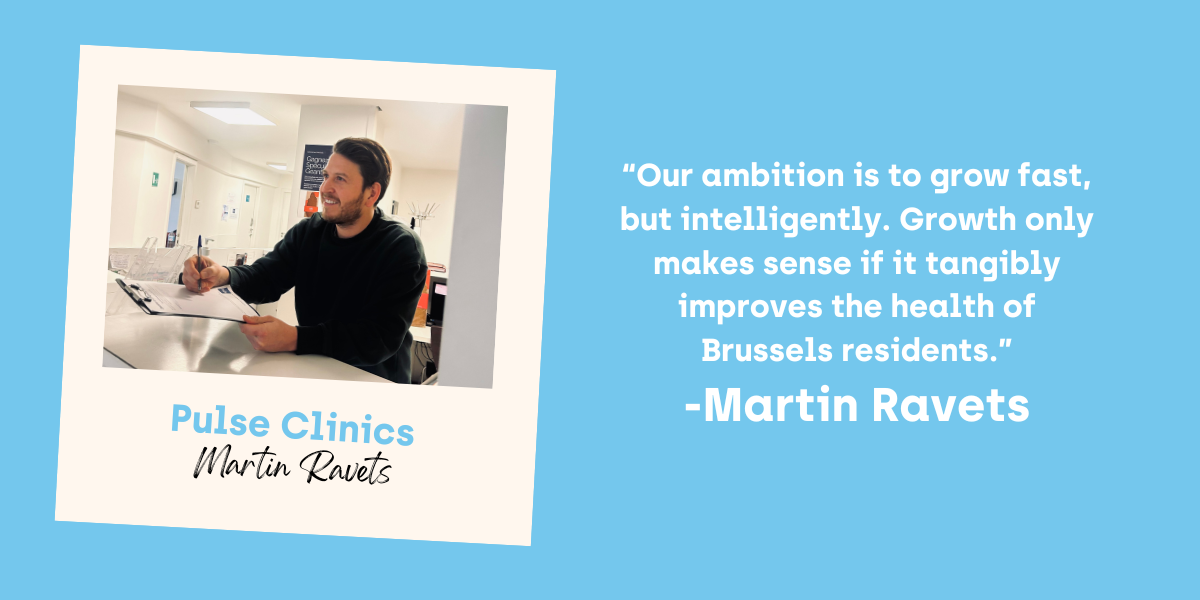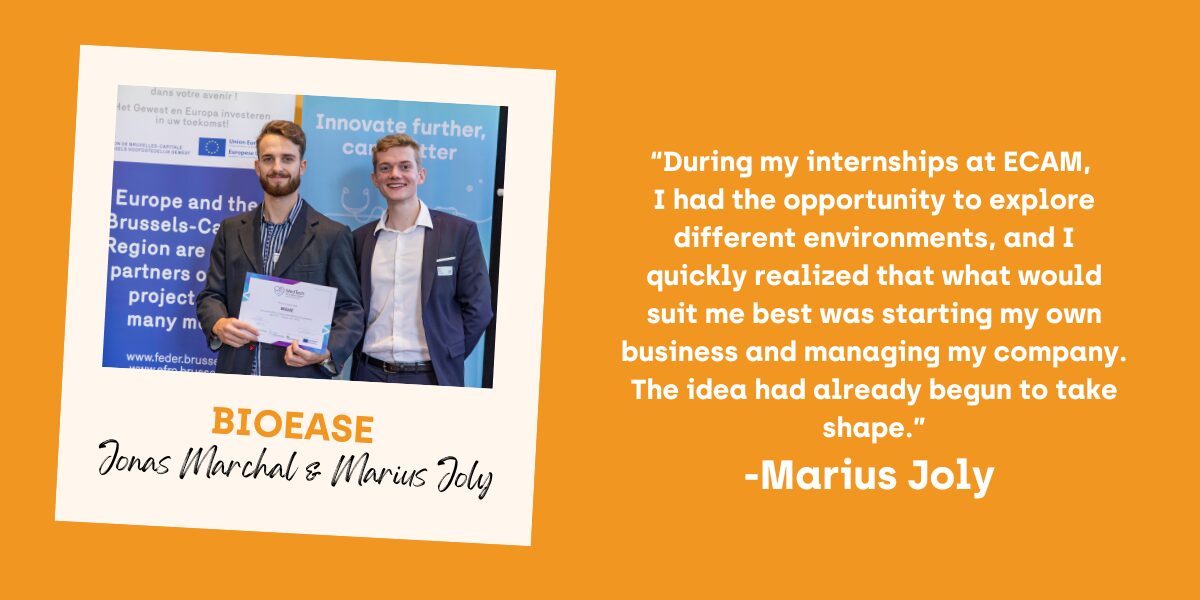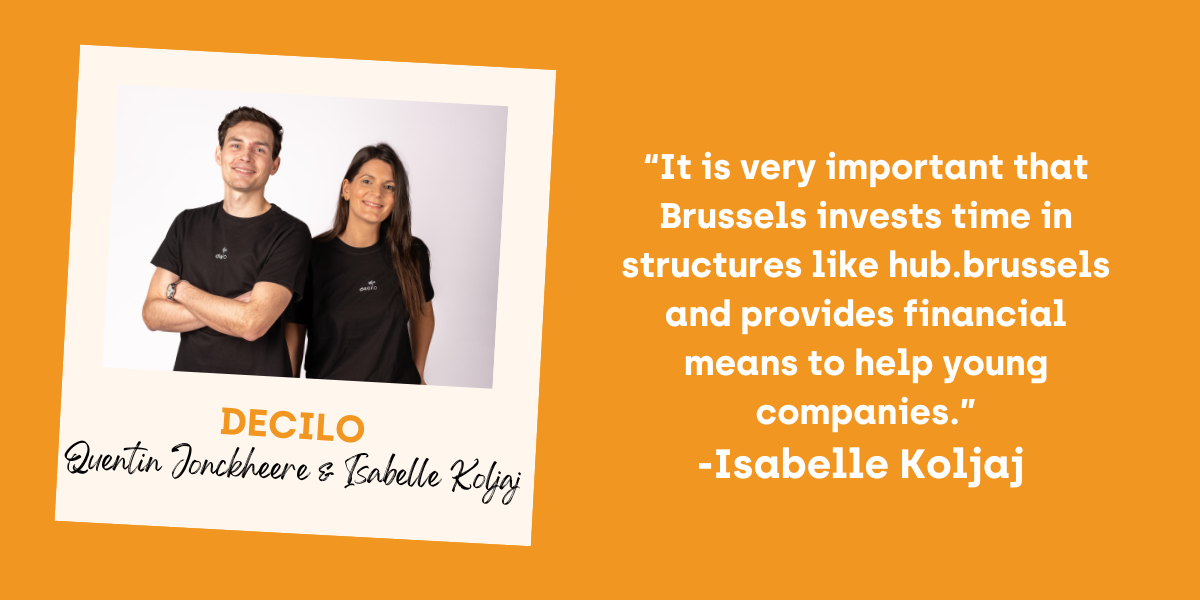Falls are a serious issue for the elderly and a major concern for the teams caring for them in nursing homes and hospitals. However, for Philippe Kaplan and Kaspard, the scale-up he founded in 2017, falls do not have to be inevitable. Kaspard offers an innovative solution aimed at tackling these potentially dangerous incidents and creating a safer everyday environment.
The device’s real-time detection and alarm capabilities are complemented by its ability to analyse and prevent falls, all while remaining non-intrusive so as to respect patients’ privacy.
Discretion and effectiveness
“Without an appropriate system, it can take up to 1 hour and 20 minutes for help to arrive after a fall, which can have serious consequences for the victim,” explains Philippe Kaplan. “Our instant alarm system reduces this intervention time to under 2 minutes, which can make all the difference.”
In practice, a small, discrete device is installed on the ceiling of a patient’s room. Its function is to detect when someone leaves their bed or falls, without capturing images or making contact with the occupant. When an incident occurs, the alarm is triggered and a 3D animation is generated to clarify the circumstances of the situation. This helps healthcare teams organise the best response for the victim and prevents future incidents.
A benefit for everyone
Kaspard’s system has shown that extended time out of bed is the strongest indicator of the risk of a fall. “By setting the alarm to go off when someone has been out of bed after a given time period, we have reduced falls by 50% and therefore the number of serious falls leading to costly medical treatment!” Philippe Kaplan says proudly. “In 2023, we estimate that we prevented 2,000 falls.“
He highlights the added comfort, not just for patients, but for the healthcare staff who can perform their duties with greater peace of mind and dedicate more time to providing a human touch. It also provides families with reassurance about the quality of care their loved ones are receiving. He summarises, “We believe we are playing a crucial social role, while generating healthcare savings that more than compensate for the cost of installing our solution. Our aim is to improve quality of life through better information.”
Technology working for safety
Such effective detection requires the use of advanced technology. The remote sensors, similar to those used in autonomous vehicles, have been developed by Kaspard’s own team. This technology has been continuously refined and adapted to meet real-world needs, resulting in a comprehensive solution for fall prevention. “Until now, many of the solutions offered have been partial. There are few highly effective operators in Europe,” Philippe Kaplan notes. “We are the most prevention-focused solution and also the most widely deployed in Belgium and France.“
Kaspard’s device is now deployed in over 3,000 rooms across care homes, hospitals and retirement facilities. “In addition to the fact that the French market is much bigger than the Belgian market, the major care home operators in Belgium are French,” observes Philippe Kaplan. “After the COVID-19 crisis and the scandals that affected the sector, there is a need for reinvention. Operators are very sensitive to the principle of offering a quality service to their residents and a pleasant working environment for their staff. But we are also working with smaller entities and the public sector.”
Kaspard soon to be everywhere in Brussels?
The entrepreneur with a background in finance entered the healthcare sector through consulting and coaching roles with several Belgian SMEs. He has no regrets about this career shift. Today, he leads a dynamic company with a team of around a dozen employees and a branch in France. He expects Kaspard to achieve financial stability by the end of 2024 and has ambitious plans for both international and national expansion and of course, in Brussels.
“My dream is to see Kaspard deployed in all 4,500 rooms across the care homes belonging to the Public Centres for Social Welfare in Brussels, making our device as essential as seat belts in cars. This is the price of fall prevention. Policymakers need to recognise this for the general good, that of residents, healthcare staff, families and the social security budget!”
Lifetech.brussels past, present and future
To achieve the necessary collaboration between decision-makers and the Brussels medtech ecosystem, Philippe Kaplan has found a vital ally in lifetech.brussels, the healthcare cluster of hub.brussels. “I joined the MedTech Accelerator in 2018-2019,” he explains. “It has been an irreplaceable intermediary and a great platform for reflecting on our strategy, networking with peers, enhancing our visibility and a fantastic facilitator for our participation in international trade shows.”
He adds: “In Brussels, there are many measures that support initial research. We have benefited from support from Innoviris and finance&invest.brussels, but politicians also need to provide practical support to help start-ups and our ecosystem to establish itself sustainably. We really need their backing to thrive over the long-term.“
Website https://kaspard.com/



